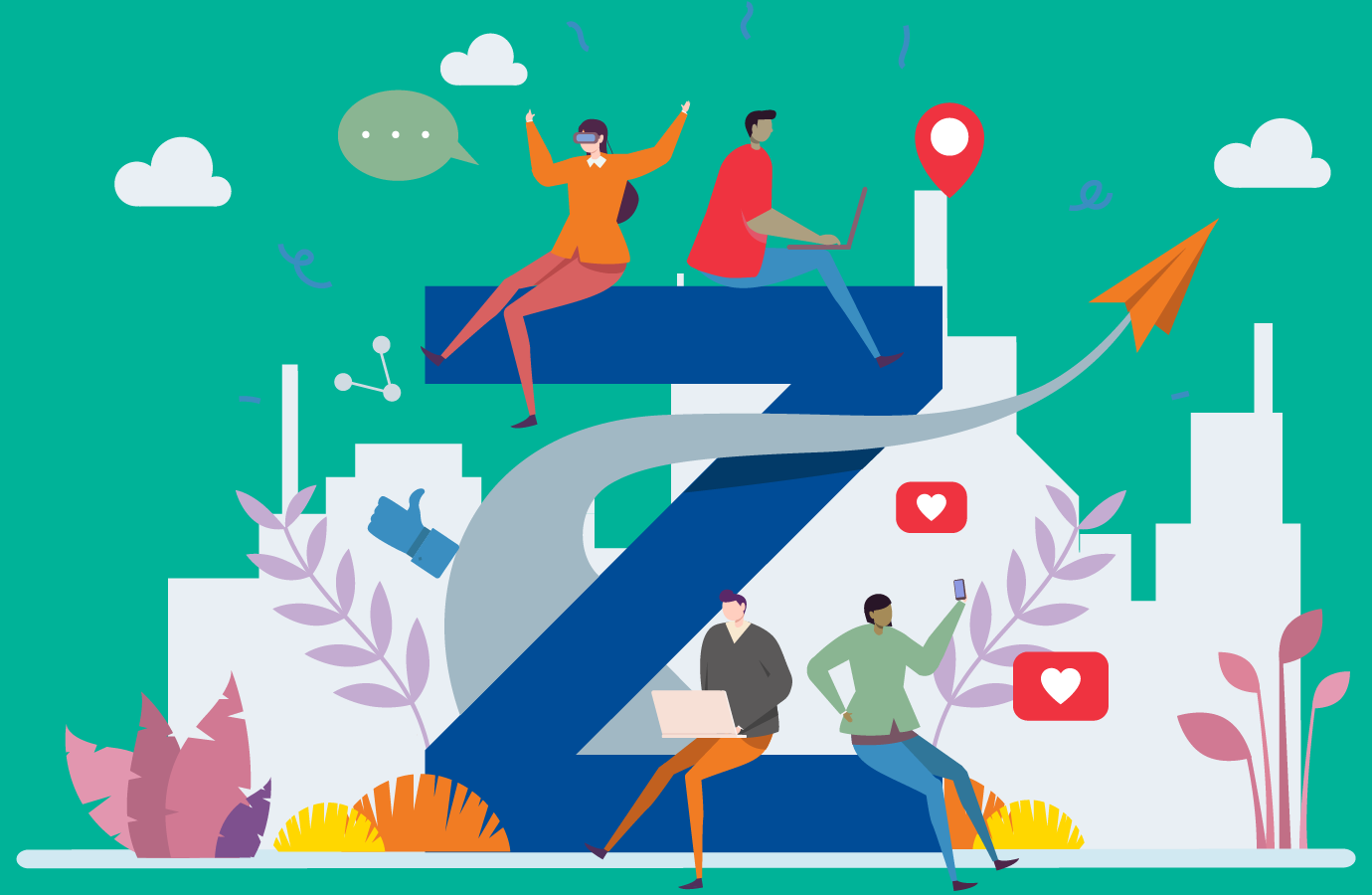Born between 1996 and 2012, Gen Zs are the new-age workforce that is gradually changing the landscape of the corporate world. Driven by a strong sense of purpose, these young professionals constantly seek authentic and fulfilling work experiences and embrace experiences that allow them to grow, learn, and contribute to the world around them. As they enter organizations as early career talent, they often find it hard to adapt to the traditional leadership style and corporate culture.
But it’s not just Gen Zs struggling to adapt. Managers of Gen Zs from previous generations are having a hard time engaging this new group of employees. It is essential for all leaders to understand how to lead and engage Gen Zs more effectively. So how do you inspire, motivate, and retain Gen Zs in the modern workplace?
Strategies for Effectively Leading Gen Z
Adapt Your Leadership Style
Adapting your leadership style for Gen Z employees requires a keen understanding of their unique values and expectations. This generation prioritizes inclusivity, transparency, and opportunities for personal growth. To effectively lead them, ensure open lines of communication and foster an environment where feedback is not just welcomed but actively encouraged. Provide clear pathways for career development and leverage technology to facilitate flexible work arrangements. By embracing these strategies, leaders can cultivate a motivated, engaged, and high-performing Gen Z workforce.
Create a Purpose-Driven Culture
Gen Z workers crave purpose in their work, so it’s necessary to create a sense of connection and purpose that resonates with them. From our research, one of Gen Zs’ top goals is to “become a better person,” and if they can see a connection between what they do at work and how they are growing and contributing to something bigger than themselves, they are much more likely be invested in the organization’s success. Start by ensuring that Gen Zs understand their role and its connection to the organization’s goals by explaining how their work contributes to the company’s success. By doing so, you can significantly increase engagement, reduce burnout, and enhance “stickiness” to the organization.
Encourage Personal and Professional Growth
For Gen Zers, personal growth is just as important as professional growth. By encouraging personal growth, you show interest in their overall well-being. Offering growth opportunities for professional development, like attending conferences or training, will help them grow professionally. This investment also benefits the organization, especially if they can apply the new learning within their roles and receive coaching from their leader that reinforces the learning.
Provide Continuous Feedback
Offer regular, constructive feedback instead of waiting for annual performance reviews. Gen Z values immediate insights to improve their work. This can be achieved through weekly check-ins or real-time feedback sessions, which not only help them quickly understand their strengths and areas for improvement but also build a stronger rapport between managers and employees. By fostering open communication and providing actionable advice, you can significantly contribute to their professional growth and help them feel more engaged and motivated in their roles. Regular feedback loops ensure that issues are addressed promptly, and achievements are recognized in a timely manner, which can boost overall morale and productivity.
Develop Mentorship Programs
Gen Zs possess a strong growth mindset and crave mentorship and leadership development. Investing in a mentorship program shows your willingness to support them in their professional growth while guiding them along the way. A good mentorship program for your Gen Z talent helps to build trust, promote communication, instill confidence, and ensure the mentees feel valued and supported. Ideally, a mentor is not the same person they report to, so the relationship can be focused on holistic development and be driven by the Generation Z mentee, versus a top-down directive.
Incorporate Technology
As a tech-savvy generation, Gen Zs have grown up embedding modern technology into everything they do. Incorporating innovative technologies and new apps that can make work easier, faster, and more efficient for them will spark their productivity and creativity. Automation, gamification, and enhanced communication and collaboration will all be benefits that resonate with Gen Zs. Organizations that don’t integrate technology into their businesses may be perceived by Gen Zs as less innovative, creative and cutting edge which can impact the ability to recruit top talent.
A Final Thought
Engaging and leading Gen Zs in today’s corporate environment requires a bold approach. Creating a sense of purpose, encouraging personal and professional growth, offering continuous feedback, providing mentorship opportunities, and incorporating technology are a few ways to effectively motivate and engage Gen Zs. Remember that Gen Zs are driven by authenticity, growth, and innovation, and the bolder you are in creating a progressive work environment for them, the more fruitful your organization’s team culture will become.
Optimus SBR’s Learning & Development Practice
At Optimus SBR, we know first-hand that building a great team is about attracting, retaining, and engaging top talent. We partner with clients to create scalable, targeted, experiential learning programs that enhance people leadership, employee engagement, team collaboration, and performance results.
If you’re a leader wanting to understand how to lead Gen Z employees in your organization, please feel free to connect and learn more about opportunities to partner with us.
Giselle Kovary, Head of Learning & Development Practice
learning@optimussbr.com

Optimus SBR Celebrates 6 Consecutive Wins as 2024 Best Workplaces™ in Professional Services
Our commitment to a people-first approach has been central to being recognized in 2024 for the sixth time as one of the Best Workplaces™ in Professional Services and the key to our overall success.

12 Best Practices to Increase Cross-Team Collaboration and Enhance Organizational Alignment
Enhancing cross-team collaboration drives innovation, optimizes resources, improves overall performance, and ensures every part of your organization works toward the same goals.

Enhancing Your Data Strategy for Success: The Power of Metadata
Metadata goes beyond just aiding in data retrieval. It ensures your data is secure, compliant and, most importantly, understood consistently by everyone in the organization.

Optimizing Language Translation Strategies: Beyond Compliance to Enhanced Operational Efficiency
The introduction of Quebec’s Bill 96 in Canada underscores the necessity for comprehensive translation strategies. Integrating machine translation technologies helps meet regulatory requirements while enhancing translation speed, cost efficiency, and operational effectiveness.

How to Manage Gen Z: 16 Strategies to Engage and Retain Young Talent
These practical strategies lead to a workplace that is better aligned with the values and expectations of Gen Z employees, ensuring that your efforts to attract and retain Gen Z talent are both successful and sustainable.

How to Measure the Success of Learning and Development: 12 Important Metrics to Evaluate
Quantifying the success of L&D training programs can be challenging. Learn about selecting and measuring the right metrics to determine whether your training efforts are truly making an impact.




